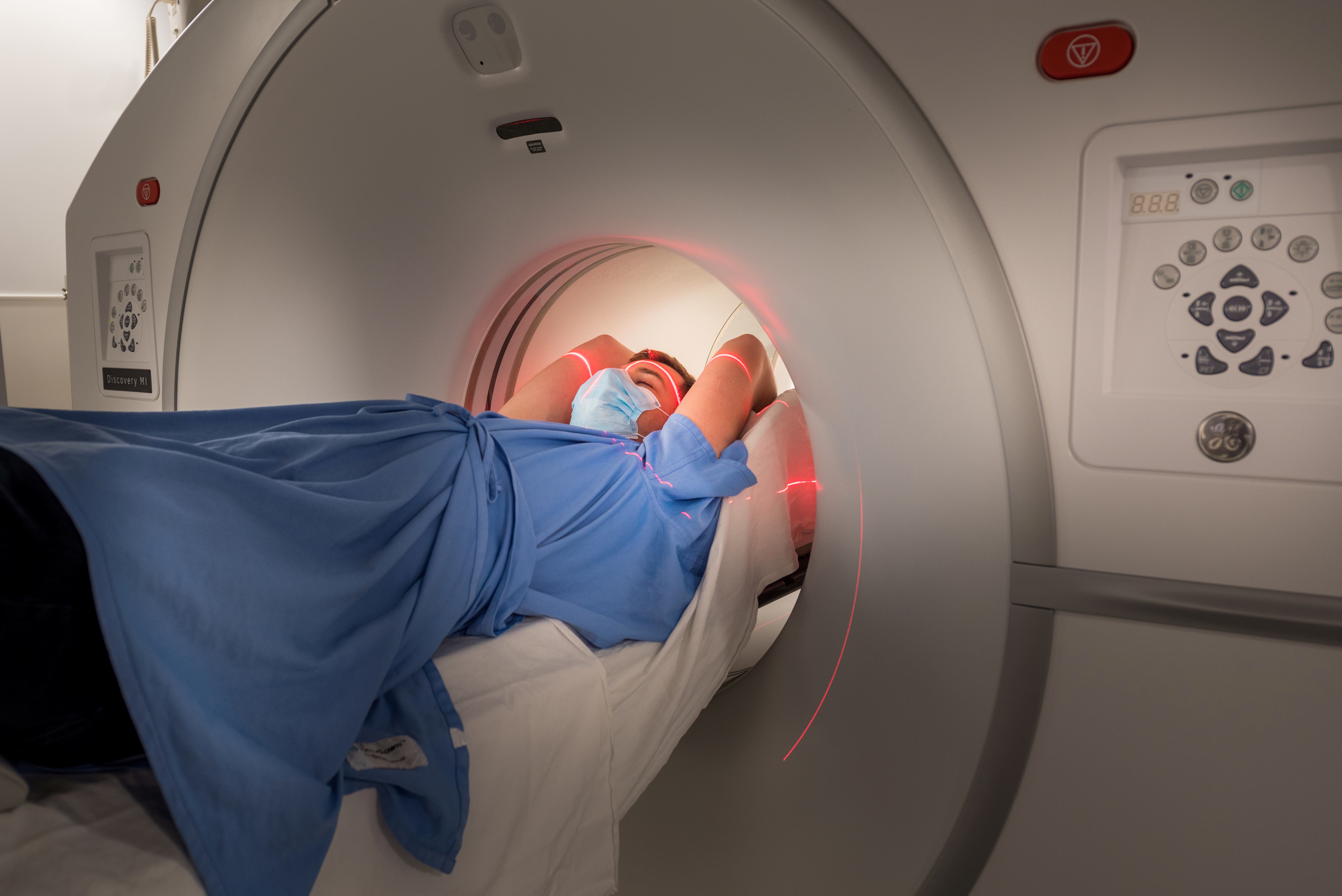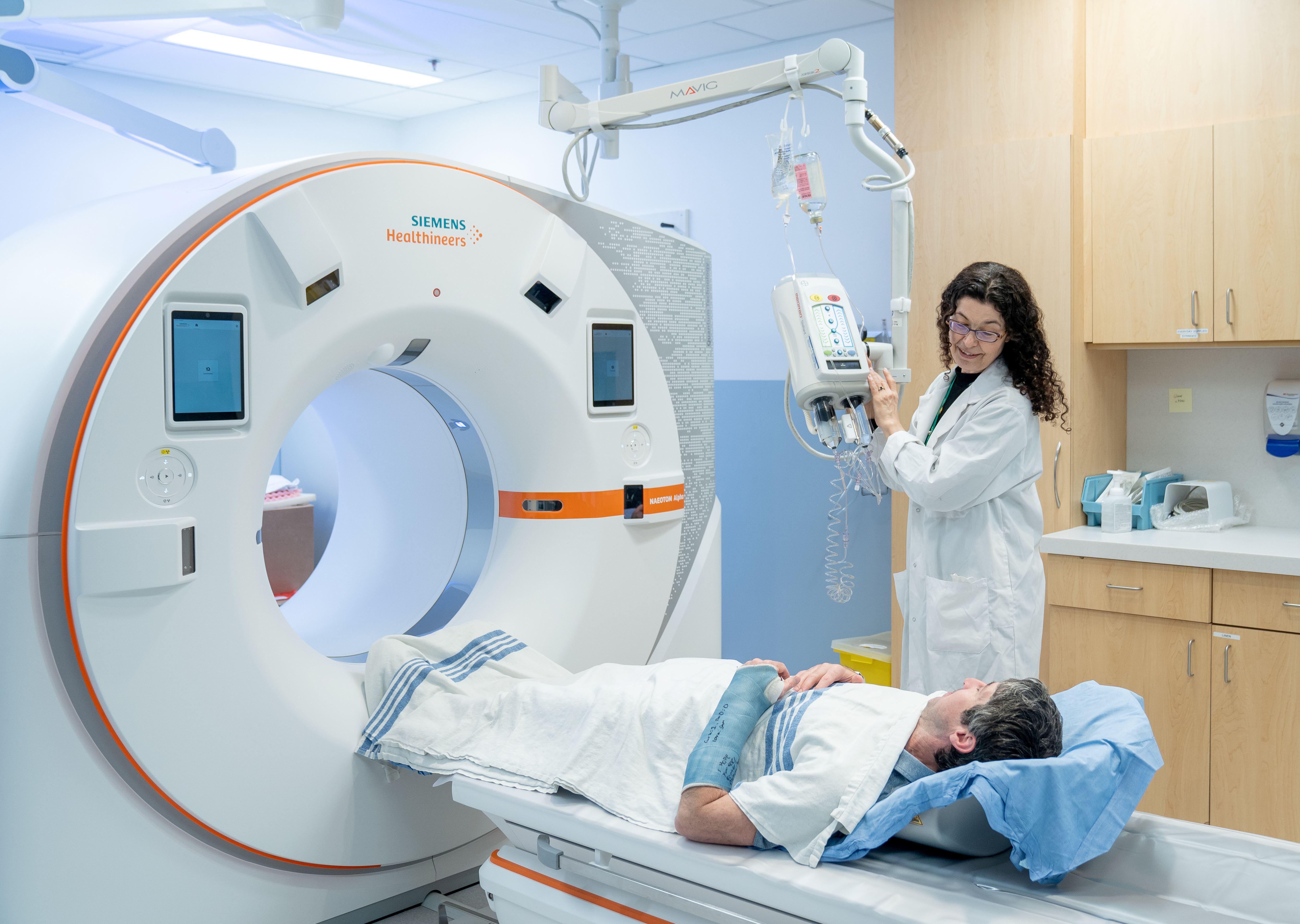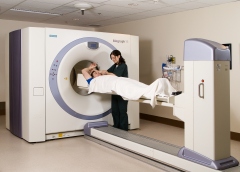State-of-the-Art Scanning Technology a First for Canada
November 20, 2024
Found in BC Cancer - Vancouver, PET/CT scan

How scientists and clinicians understand and treat cancer has come a long way. But, despite these extraordinary advances, effective cancer treatment still faces some common challenges: precision, patient comfort, accessibility and time.
BC Cancer’s Senior Executive Director of Research Dr. François Bénard, his colleagues Drs. Arman Rahmim and Carlos Uribe, and their teams, are leading the charge to bring a Next Generation PET/CT scanner (as well as a new pre-clinical scanner) to BC Cancer — technology that offers a rare opportunity to overcome all of these challenges at once.
“It’s the gold standard in cancer imaging, and not available anywhere else in Canada,” explains Dr. Bénard. “Only a few of these scanners operate in the world and they’re a huge leap forward from the current technology.”
“It’s not something I thought I would see in my career,” adds Dr. Bénard. “When I started, it took 90 minutes to scan one person. We could only do five to seven patients per day and the image quality was nowhere close.”
The new Next Gen PET/CT is about 20 times faster than the machine it’s replacing, because it is more sensitive. This provides the option of drastically decreasing radiation doses or examination times, or a combination of both. What this can do for cancer care in the province is hard to overstate.
BC Cancer currently operates the busiest PET/CT imaging program in Canada, serving 70 patients per day. This new scanner’s speed, sensitivity and accuracy will greatly increase the number of scans. “Space and personnel, rather than the scanner, become the limiting factors,” says Dr. Dr. Bénard.
The Next Gen PET/CT can cut scan time from the current standard of 40 minutes to just 2 minutes. From those 120 seconds, researchers get unprecedented data that increases the chances for early detection, identifies smaller cancer sites, and accurately measures a drug’s efficacy over time. This knowledge allows for a more seamless move from diagnosis to treatment.
This machine identifies and localizes cancer but will also be used to support research on the development of new radioactive drugs to treat cancer. “It’s called Theranostics,” Dr. Bénard explains, “and it’s a game-changer — we plan to use this scanner to learn how much dose we need to deliver to treat the cancer, while making sure we keep healthy tissues safe.”
With that process accelerated, these scanners address the crux of cancer care: Time. For the people facing it, for the oncologists treating it and for the researchers working to understand it.
B.C.’s unique ability to produce new radioactive particles will accelerate things even further. In addition to its own cyclotrons which produce radioisotopes for PET imaging, BC Cancer partners with TRIUMF, Canada’s national particle accelerator centre.
“TRIUMF can produce rare diagnostic and therapeutic isotopes that no one else can. They are located right in BC Cancer’s backyard, says Dr. Bénard. “We are the best resourced and most prolific cancer imaging program in the country and are well-positioned to take full advantage of this technology.”
But Dr. Bénard’s hope for these new scanners is on an even larger scale. It is another example in our long tradition of “B.C. innovation that can benefit the world,” he says. “Our imagination will be the only limit to what this tool can provide.”

State-of-the-Art Scanning Technology a First for Canada
Support BC Cancer – Vancouver’s Technology Transformation — a suite of best-in-class diagnostic, imaging and radiation equipment, including the Next Gen PET/CT.
Donate Today

